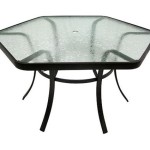Installing Patio Stones Over Concrete: A Step-by-Step Guide
Transforming a plain concrete patio into a captivating outdoor oasis is a rewarding project that can enhance your home's visual appeal and functionality. Installing patio stones over concrete is an excellent way to achieve a durable, aesthetically pleasing, and low-maintenance surface for your outdoor living space. Here's a step-by-step guide to help you navigate this DIY project successfully.
1. Preparation:
Before commencing the installation, ensure the concrete surface is clean, level, and free of any debris or loose particles. Sweep or power wash the concrete to remove dirt and grime. If any cracks or uneven areas are observed, repair or level them using appropriate materials like concrete patching compound or self-leveling underlayment.
2. Layout and Design:
Plan the layout of your patio stones to determine the number and size of stones required. Consider the desired pattern and spacing between stones. Dry-lay the stones on the concrete surface to visualize the final result and adjust the layout if necessary.
3. Adhesive Application:
Apply a thin layer of a suitable adhesive to the concrete surface using a notched trowel. Select an adhesive specifically designed for outdoor use and compatible with the type of patio stones you're using. Follow the manufacturer's instructions for mixing and spreading the adhesive.
4. Stone Placement:
Carefully place the patio stones on the adhesive, ensuring they are level and securely embedded. Firmly press down on each stone to remove any air pockets and create a strong bond with the adhesive. Use a rubber mallet or tapping block to gently tap the stones into place.
5. Leveling:
Once the stones are in place, use a spirit level to check their levelness. Adjust any uneven stones by adding or removing adhesive beneath them. Ensure the surface is both level and even to prevent water pooling or uneven wear.
6. Joint Filling:
After the adhesive has cured, fill the joints between the patio stones with a polymer-based jointing sand. Apply the sand using a fine brush or jointing tool, ensuring it fills the joints to the top. This will help prevent weeds from growing and stabilize the stones.
7. Sealing (Optional):
To enhance the durability and aesthetics of your patio, consider applying a sealant to the surface. Sealants help protect the stones from moisture, stains, and UV radiation. Choose a sealant specifically designed for outdoor use and follow the manufacturer's instructions for application.

How To Install Patio Pavers Over An Existing Concrete Slab

Installing Pavers Over A Concrete Patio

Paver Installation Over Concrete Overlay Using Pavers

Installing Pavers On Concrete Unilock

How To Install Patio Pavers Over An Existing Concrete Slab

How To Cover A Concrete Patio With Pavers Diy Family Handyman

How To Install Patio Pavers Over An Existing Concrete Slab

Why Installing Pavers Over Concrete Is A Bad Idea Pavertime

Installing Interlocking Pavers Over A Concrete Or Asphalt Base

How To Install Patio Pavers Over An Existing Concrete Slab








